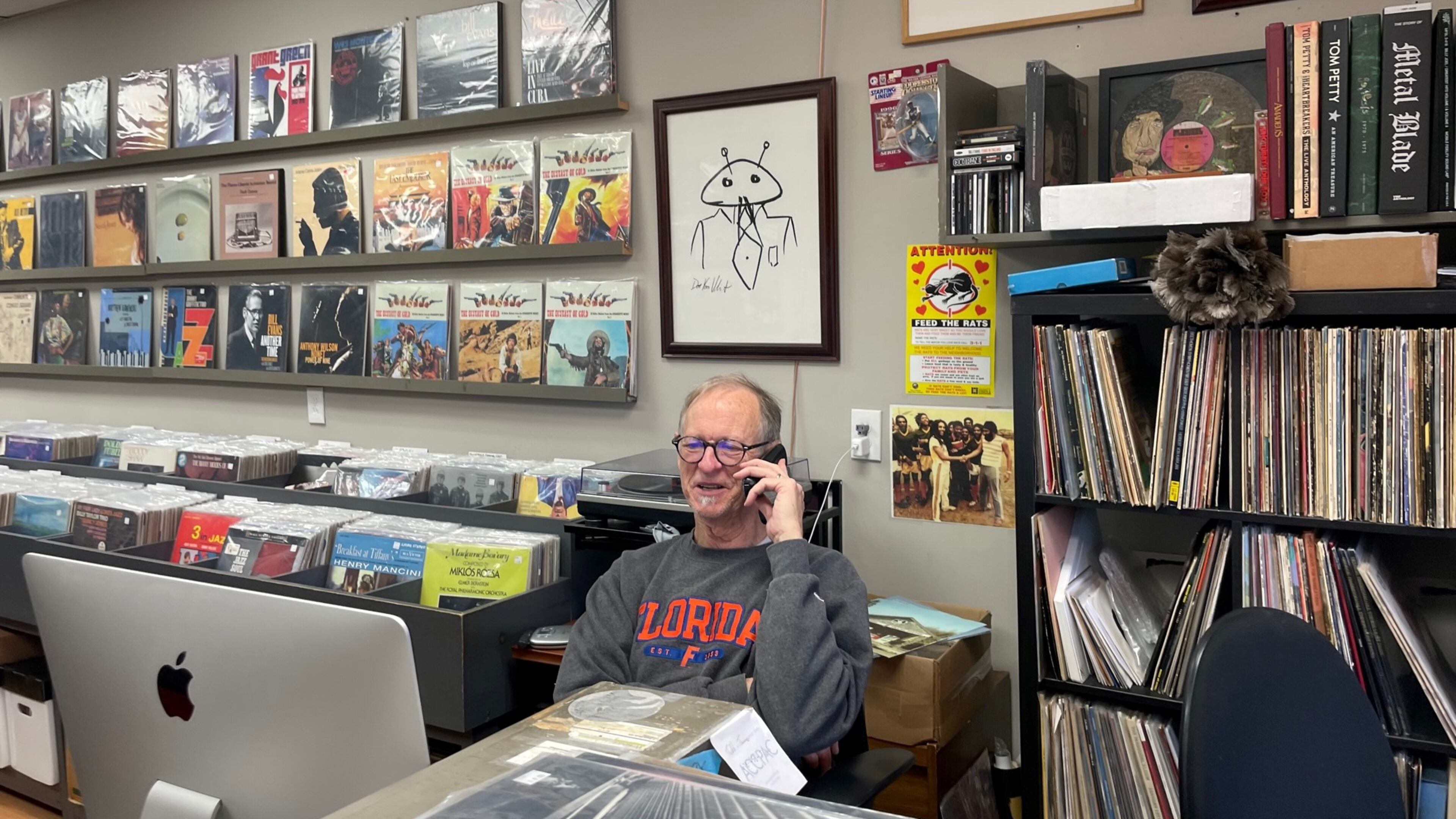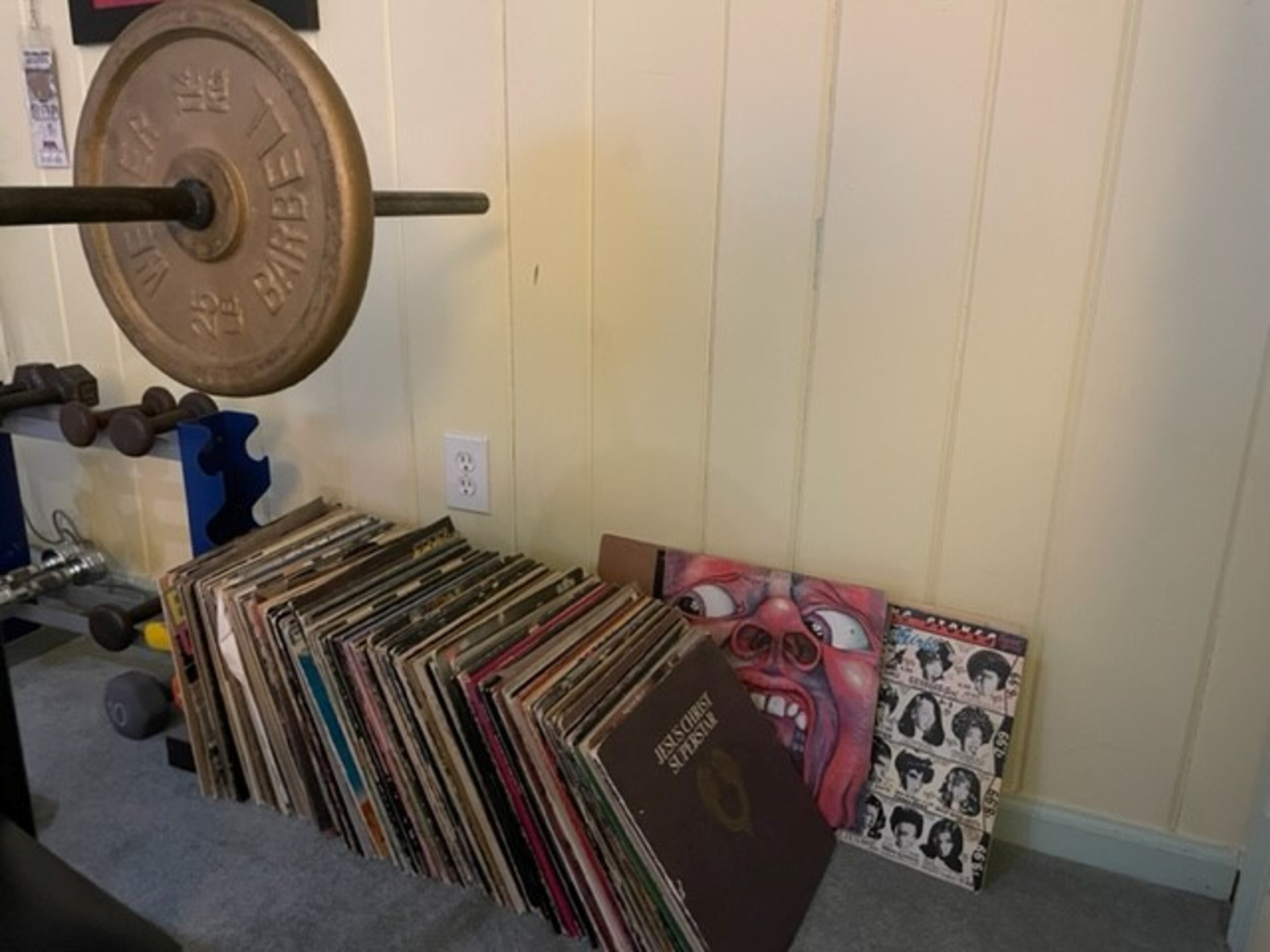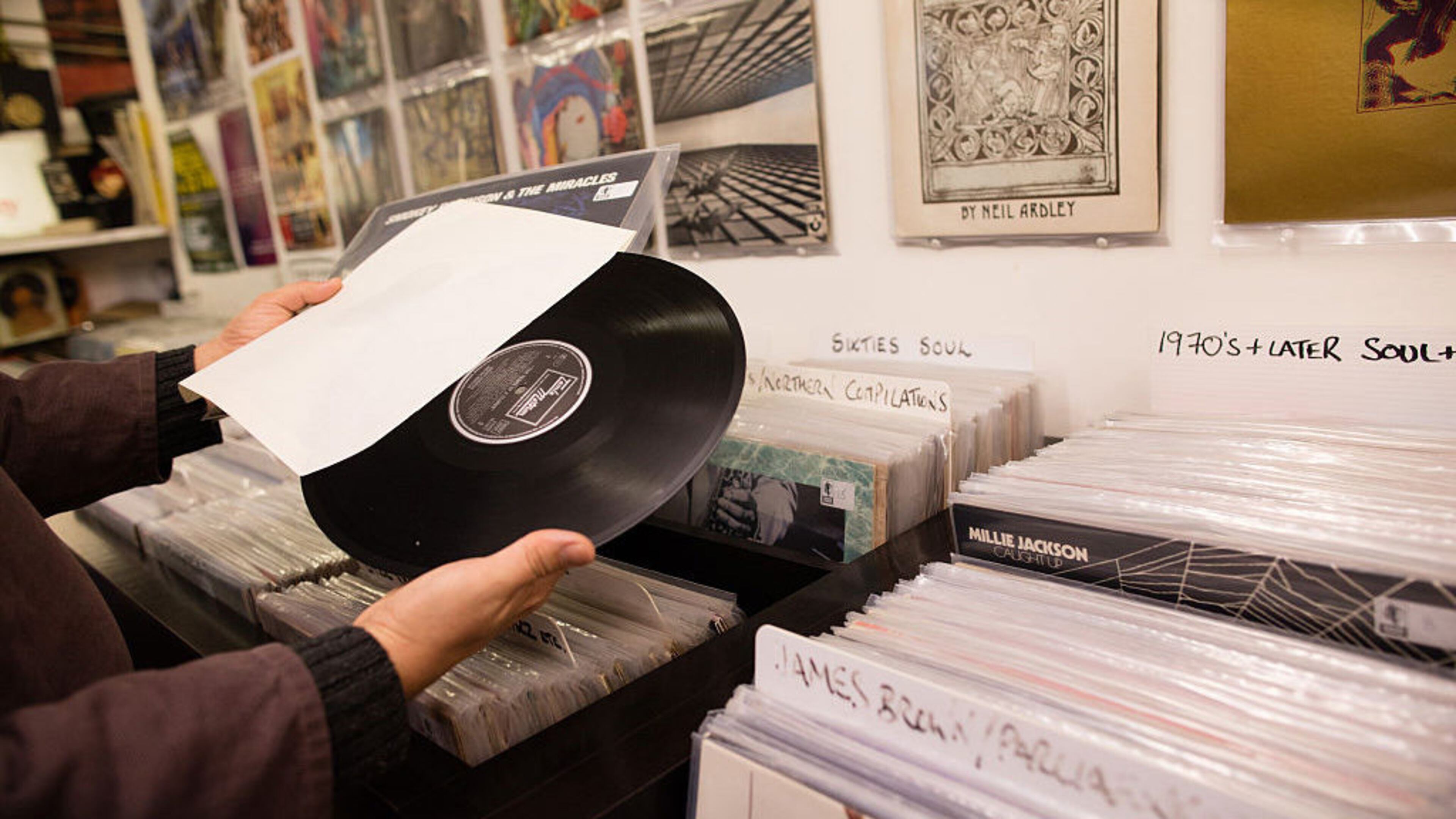OPINION: Time to dump the old record collection? Or not

My LPs have ended up in the basement. After 50-plus years of being played — albeit, increasingly infrequently — they’re a small, melancholy step away from the used record shop.
It’s a familiar tale: Those records we bought when we were young, carefree and (trying to be) cool now silently eat up space at the homes of aging rockers.
In my case, they’re threatened by a slow, but steady, home refurbishing. The kids are gone. Julie has Marie Kondo’d the house. And there’s a room-by-room fixup underway. The stereo and that aging vinyl stands in the way of a new linen closet.
Time was that one’s albums and jacked-up stereo system were a centerpiece of where you lived, whether the bedroom or basement when you were young or the living room as a college student or young adult. Records had to be immediately available to be tossed onto the turntable because tunes were a big part of what you were about.
Music is now transferable and transient. You can store 10,000 songs on an iPhone, about 1,000 albums worth. This is truly a Jetsons-like advancement.
But there was more of an attachment to music, more of a commitment, when tunes were actually a thing, a manufactured item with accompanying artwork, not an instantaneous download.
You had to: Head to the record store. Flip through bins of vinyl. Argue who was better, Zeppelin or Sabbath? Weigh the value of buying one recently released, and full-priced, record versus two of last-year’s, value-priced cutouts. Plunk down hard-earned cash at the register. And then peel away the cellophane on the train ride home, reading liner notes and anxiously anticipating a spin on the turntable.
An album collection, curated one record at a time, was a window into your personality, or perhaps a portrayal as how you hoped to be seen.

A fascinating British study conducted in 2005 — “The psychological meaning of personal record collections and the impact of changing technological forms” — said albums were a measure of one’s “uniqueness and of conformity,” a picture of one’s “past self.”
The study noted that, in 2002, “20 years after CD was launched as a format, worldwide sales of albums on CD exceeded 2.25 billion, compared to 8.5 million vinyl albums.” At that time, something else was happening: Digital music was taking hold. (Vinyl is back. In 2020, record sales surpassed CDs for the first time since 1986. My son Liam is now into vinyl.)
“Recorded music is unlike any other kind of marketed product: we rarely buy the same item more than once and in most cases, we retain the item throughout our lives,” the authors wrote. Such collections “serve as a kind of cultural autobiography for their owners, by attaching to specific moments, events, and relationships across the lifespan.”
Most who were surveyed “were able to recall considerable detail about the first record they purchased.”
Mine was the “The Good, The Bad And The Ugly” soundtrack. I was 10.
There was an alligator involved. Actually, a 15-inch-long baby caiman, for sale at Montgomery Ward for $6.99. I envisioned raising and grooming it and ultimately walking the 8-foot-long creature on a leash to the awe of the other kids in our South Side Chicago neighborhood. That bonding never happened. It immediately bit me through the nail of my index finger and mysteriously died a day later. The dead-caiman refund paid for the album.
Today, we have perhaps 400 albums, two-thirds mine, a third Julie’s. (We shed maybe half decades ago.) There are also 250 CDs. The albums carry way more memories. Perhaps it’s the day you bought it. Or junior year in high school. A party you first heard the record playing. A road trip. A girl you knew.
I flipped through them. There’s Willie Nelson’s “Stardust.” Julie and I slow-danced to “Georgia on My Mind” after setting up the stereo at our cramped rental house after moving to Atlanta. We had just learned she was pregnant.
There’s Black Sabbath’s “Sabotage,” which has a friend’s dried blood still on it from a sudden fight in his basement in 1976.
There’s “Jesus Christ Superstar,” which we listened to endlessly in 8th grade religion class. I play the entire two-record rock opera every Easter. Last Easter, I went to the turntable and the album was still on it from the previous year.
Maybe it was a sad, heavenly sign.

I stopped in at Ella Guru Record Shop in the Oak Grove area of DeKalb. Don Radcliffe, the proprietor, winced when I told him my story.
“If they’ve gone down to the basement, that’s the last stop,” he said. Knowingly. This guy lives off buying records from the likes of me.
“People look at records at their house for 30 years and wonder why they’ve kept them,” Radcliffe said. Then they arrive at his door. Sometimes he makes an offer — and they balk. They need a day, or two, to consider. It’s emotional.
Who buys? Longtime collectors or those who want to recreate the memory of their dorm room from the 70s or 80s.
Best sellers? “Albums that sold millions did so for a reason,” he said. “If someone sold me 50 copies of (Fleetwood Mac’s) ‘Rumours,’ (Pink Floyd’s) ‘Dark Side of the Moon,’ (Marvin Gaye’s) ‘What’s Going On?’ or (The Eagles’) ‘Hotel California,’ they’d be gone in a month.”
He used to tell prospective sellers, “You have no one left to impress with your records.” Too harsh, his wife, Melissa Connor, reasoned. How about telling them about how many people you’ll make happy setting the records free?
It’s a better sales pitch, but it feels like tossing my pet alligator into the river and letting him swim away.



